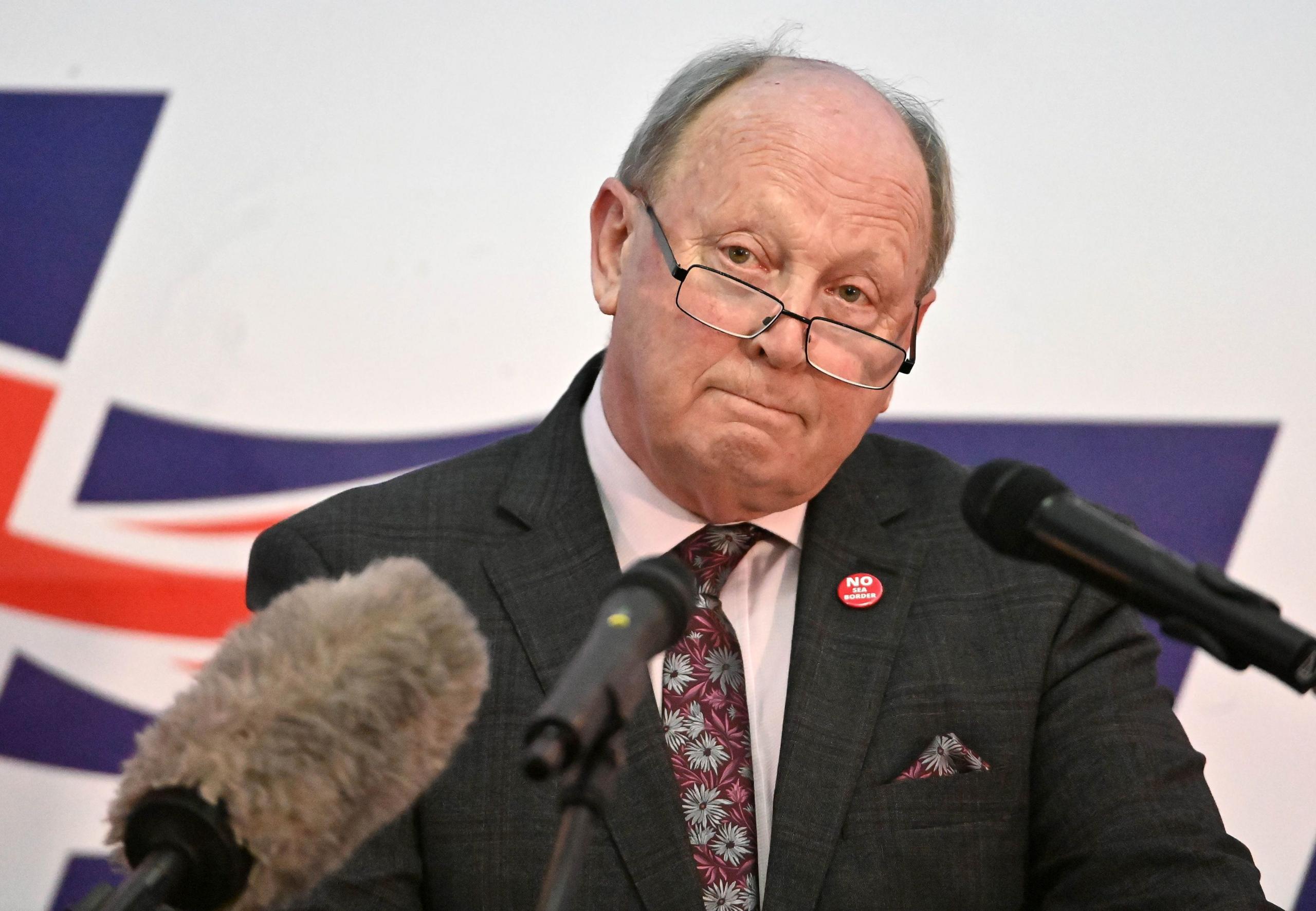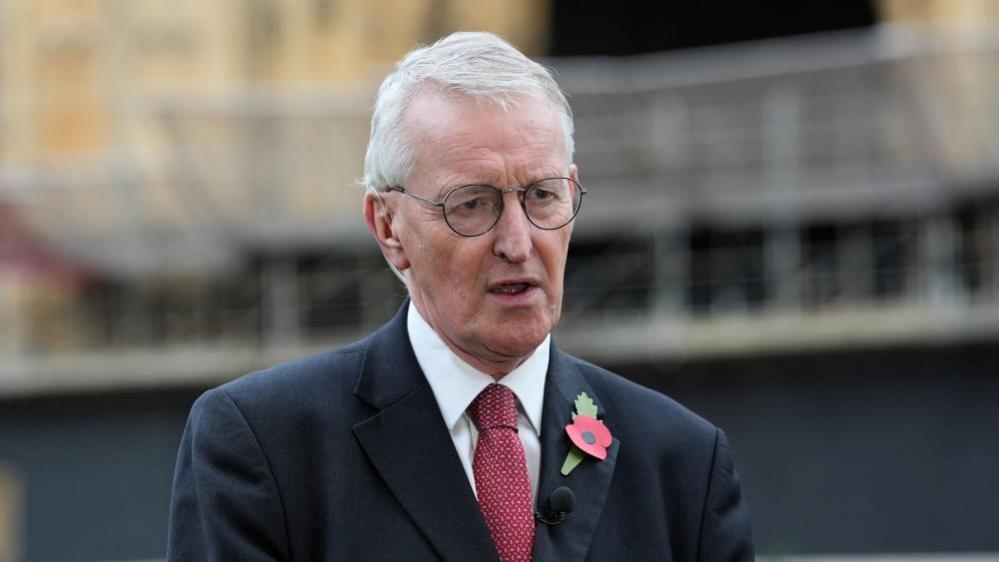'We need to have the protection of the protocol,' says O'Toole

O'Toole intends to gather support for the protocol
- Published
Northern Ireland "needs to have the protections that are in the protocol", according to SDLP MLA Matthew O'Toole.
On Thursday, NI Secretary Hilary Benn triggered the process to enable MLAs to vote on the controversial post-Brexit trading arrangements.
Unlike other votes at Stormont, cross-community support for the motion is not required. A simple majority will suffice.
MP and TUV leader Jim Allister says that this is "the most significant vote taken in the history of Northern Ireland by an assembly at Stormont".
'More than happy to table it'
Hilary Benn has sent a letter to the Stormont speaker and first and deputy first ministers urging them to bring forward a motion to the assembly before the end of November.
The process, known as the democratic consent motion, was first agreed between the UK and EU in the 2020 Withdrawal Agreement to give local politicians a say in the new post-Brexit trading rules
It allows MLAs at Stormont to decide if the current arrangements including the Northern Ireland protocol should continue.
Under the agreement the process has to be set in motion two months before the current arrangements are due to expire at the end of the year.
If the first and deputy first ministers fail to bring forward the motion to allow for the vote then an individual MLA can trigger the mechanism.
O'Toole has stated that if the first or deputy first minister does not table the motion he will be "more than happy to table it".
'Surrender sovereignty'
Debating the vote on BBC Radio Ulster's Good Morning Ulster programme, O'Toole said that the protocol needs to be improved as he believes that "there are economic advantages to it".
"I would like to build support across the community, across society for the protections that are in the protocol," O'Toole added.
Allister said that MLAs are being asked to "surrender sovereignty over not one area of law but over 300 areas of law".
“Anyone who votes for this vote is advocating that their constituents are not having a say in the laws that govern them," the MP added.

TUV leader Jim Allister says this is "the most significant vote" in the Northern Ireland Assembly's history
Sinn Féin, Alliance and the SDLP are all expected to support the continuation of the arrangements.
But, the DUP has argued the vote creates a democratic deficit as the concerns of unionists who are in the minority at Stormont can be ignored.
In a statement, DUP leader Gavin Robinson said it had been "deliberately designed to drive a coach and horse through the cross-community consent principle which has been at the very heart of all political progress in Northern Ireland".
He also said he expected all pro-Union parties to join him in voting against the continued Windsor Framework.
If the vote is carried without cross community support then the government has committed to ordering an independent review of the post-Brexit arrangements and their implications.
Big vote for the assembly
Analysis by BBC News NI political editor Enda McClafferty
This is a big vote for the assembly, albeit we know the outcome because we know the way the numbers break down in the assembly.
We know that if it goes according to plan, it will probably end up somewhere in the region of 53 votes to 36 to support the continuation of the protocol in Northern Ireland for another four years.
We know that it is not going to get the cross-community support, but we do know as well of course what’s been built in beyond that.
For instance, if it does pass by a simple majority, then within one month the Secretary of State must commission an independent review.
In six months that review must be report back and then in a further six months the government must respond.
Related topics
- Published31 October 2024

- Published2 February 2024
